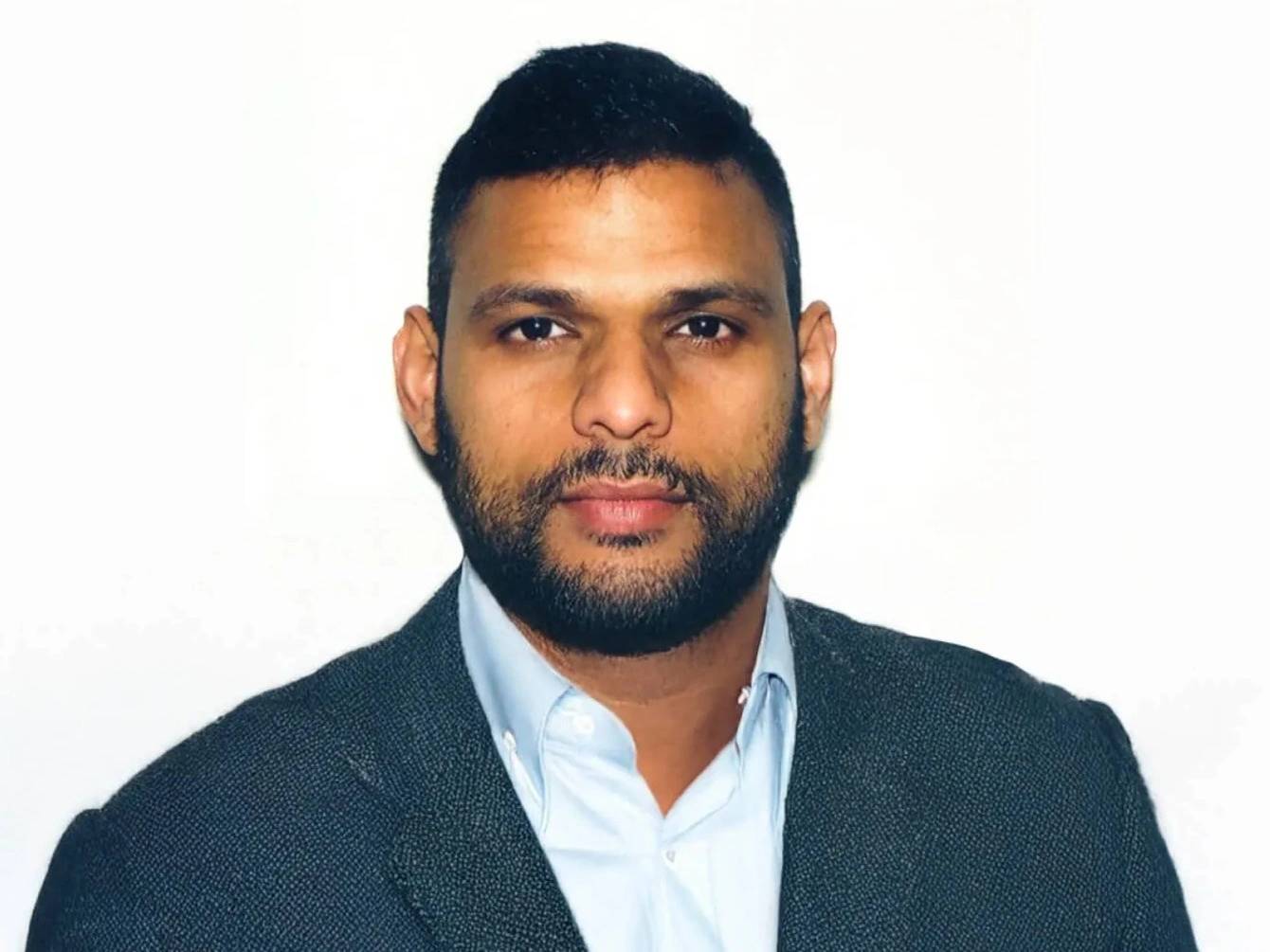위키 구독하기
Share wiki
Bookmark
Anand Gomes
0%
Anand Gomes
**아난드 고메스(Anand Gomes)**는 상품 및 신용 거래 경험이 있는 금융 및 기술 전문가로, 암호화폐 거래 플랫폼인 Paradigm과 Paradex를 공동 설립했습니다. 그는 두 회사의 최고 경영자(CEO)를 맡아 전통적인 금융 시장에서의 배경을 디지털 자산 인프라 개발에 적용하고 있습니다. [1] [2]
교육
고메스는 인도 푸네 대학교(Savitribai Phule Pune University)에서 컴퓨터 과학 학사 학위를 2006년에 받았고, 2009년에는 국제 비즈니스 대학원 졸업장을 받았습니다. 이후 미국으로 건너가 케이스 웨스턴 리저브 대학교(Case Western Reserve University)의 웨더헤드 경영대학원(Weatherhead School of Management)에서 교육을 이어갔습니다. 2011년에는 투자 및 증권에 중점을 둔 경영학 석사(MBA)와 금융, 파생 상품 및 위험 관리 과학 석사 학위를 취득했습니다. [8]
경력
고메스는 2006년 Unique Valves Pvt Ltd에서 비즈니스 운영 수석 관리자로 경력을 시작했습니다. 2010년에는 ITI Capital Limited(구 Collins Stewart Inga)에서 주식 자본 시장 인턴으로 금융 분야로 옮겼고, 2011년에는 KeyBanc Capital Markets에 파생 상품 MBA 인턴으로 합류했습니다. 그는 KeyBanc에서 여러 해 동안 OTC 상품 파생 상품 부문 부사, 부사장보, 이후 석유 및 가스 신용 거래 부문 부사장으로 근무하며 고수익 업스트림 및 투자 등급 미드스트림 신용 모두에 걸쳐 책임을 맡았습니다.
2018년, 고메스는 캘리포니아 대학교 버클리 캠퍼스의 Data-X Lab에서 AI, 블록체인 및 데이터 과학 관련 프로젝트에 기여하며 자문 역할을 했습니다. 같은 해, 그는 기관 암호화폐 파생 상품 거래 네트워크인 Paradigm을 공동 설립하여 CEO를 역임했습니다. 그의 리더십 하에 회사는 광범위한 유동성 플랫폼으로 확장되었고 2021년에는 시리즈 A 자금 조달 라운드를 완료했습니다.
2024년, 고메스는 싱가포르에서 Paradex를 공동 설립하고 CEO가 되었습니다. 이 플랫폼은 단일 담보 프레임워크를 통해 현물, 선물 및 옵션 시장 간의 거래에 중점을 둡니다. 그는 전통적인 금융 분야에서의 배경과 디지털 자산 시장에서의 경험을 결합하여 Paradigm과 Paradex를 계속 이끌고 있습니다. [1] [9]
인터뷰
암호화폐 최대 붕괴에서 살아남기
2025년 9월 When Shift Happens 팟캐스트에서 고메스는 FTX 붕괴 전후의 암호화폐 산업의 도전과 성공을 헤쳐온 여정을 공유했습니다. 그는 대규모 거래를 신속하게 실행하는 데 어려움을 겪는 대규모 거래자들의 유동성 요구를 해결하기 위해 2019년에 기관 거래소를 개발하기 시작했습니다. 그와 그의 팀에게 상당한 재정적 손실을 초래한 FTX 붕괴 이후, 그는 생존과 비즈니스 내에서의 지속적인 혁신의 중요성을 강조했습니다. 시장 거래량과 변동성이 감소함에 따라 그들은 더 나은 거래 경험을 제공하기 위해 자체 탈중앙화 거래소인 Paradex를 구축하기로 결정했습니다. 창립자는 암호화폐의 광범위한 문화적 의미에 대해 성찰하며, 게임 및 전자 음악의 궤적을 따라 곧 주류 수용으로 전환되어 궁극적으로 개인에게 금융 및 기술과 상호 작용할 수 있는 새로운 탈중앙화 방식을 제공할 것이라고 믿었습니다. [2]
Paradex
2024년 5월 Larry Sukernik(Reverie)과 함께한 I Pledge Allegiance 팟캐스트에서 고메스는 은행에서 파생 상품 거래를 수년간 한 후 2019년에 시작된 암호화폐 공간으로의 여정을 공유했습니다. 그는 암호화폐 파생 상품에서 복잡한 거래를 효과적으로 관리할 수 있는 플랫폼에 대한 시장 격차를 확인하여 FTX 붕괴 이후 상당한 혼란에도 불구하고 기관을 위한 OTC 거래소로 Paradigm을 출시했습니다. 이로 인해 거래량이 감소하자 고메스와 그의 팀은 중앙화 거래소에 내재된 신뢰 문제를 해결하기 위해 설계된 탈중앙화 거래소(DEX)인 Paradex를 개발하기 위해 방향을 전환했습니다. 그는 유동성 및 거래 복잡성을 처리하기 위한 탄력적인 기술 구축의 중요성을 강조하면서 사용자를 유치하고 유지하기 위한 전략에 대해 논의했습니다. 이 대화에서는 암호화폐 시장에서 영구 상품의 경쟁 환경, 강력한 평판 유지의 중요성, 진화하는 산업에서 규제 압력을 탐색하면서 고유한 제품을 통해 사용자 참여를 유도해야 할 필요성을 강조했습니다. [3]
프레젠테이션
Degen Vaults 3.0
2024년 7월 StarkNetCC에서 고메스는 토론 중에 "degen vaults"라고 불리는 Paradex의 새로 개발된 고수익 다중 전략 포트폴리오에 대한 세부 정보를 발표했습니다. StarkNet의 첫 번째 애플리케이션 체인인 Paradex는 9개월 전에 플랫폼을 출시한 이후 상당한 거래량을 달성하여 약 320억 달러의 거래를 처리했습니다. 고메스는 제한된 기능만 제공하고 유동성 조항이 부족한 기본 버전에서 시작하여 자본 효율성과 전략이 개선된 보다 복잡한 반복으로 볼트의 진화를 설명했습니다. 그는 Paradex의 다가오는 버전 3 볼트가 여러 자산 유형과 방법을 통합하고 자산 활용도를 개선하기 위해 유동성 토큰을 도입하여 엔드 투 엔드 온체인 투자 관리를 제공할 것이라고 제안했습니다. 그는 이러한 볼트가 정교한 투자자와 소매 사용자 간의 인센티브를 조정하여 후자가 적극적인 거래의 스트레스 없이 전문적인 통찰력으로부터 이익을 얻을 수 있도록 하는 데 있어 장점을 강조했습니다. 또한 고메스는 플랫폼 기능에 대한 다양한 개선 사항과 함께 크로스 체인 브리징 및 지갑 지원 계획을 발표하면서 탈중앙화 금융의 방향에 대해 낙관적인 견해를 표명했습니다. [6]
가스에 대한 권력
2024년 7월 StarkNetCC에서 고메스는 StarkNet 앱 체인에 구축된 영구 탈중앙화 거래소(DEX)인 Paradex의 진화와 성능을 발표했습니다. 작년 10월에 출시된 Paradex는 상당한 이정표를 달성하여 일일 약 1억 5천만 달러의 거래량을 처리하고 총 1,700만 달러의 총 가치 고정(TVL)으로 시작 이후 총 320억 달러에 도달했습니다. 고메스는 DeFi 거래에서 특히 유동성 및 성능 문제에 직면한 과제에 대해 논의하여 중앙화 거래소의 이점과 탈중앙화 금융의 투명성 및 자체 보관을 결합하기 위해 Paradex를 개발하게 되었습니다.
특히 팀은 가스 요금을 해결하여 거래당 비용을 출시 시 6,000~8,000 가스에서 500 가스 미만으로 줄여 새로운 시장을 추가하는 데 도움이 되었으며, 3개에서 55개로 증가했습니다. 이 프레젠테이션에서는 운영을 개선하고 시장 제공을 더욱 확장하기 위한 Paradex의 지속적인 노력을 강조하면서 사용자 요구를 충족하기 위해 200개 시장에 도달할 계획을 설명했습니다. 또한 고메스는 앱 체인의 용량과 성능을 향상시키기 위해 Starkware와의 협력 최적화 노력을 언급하면서 탈중앙화 거래 인프라 관리의 복잡성을 강조했습니다. [5]
잘못된 내용이 있나요?
